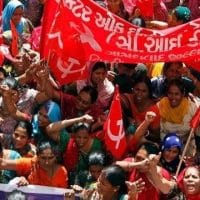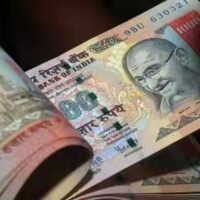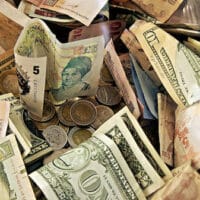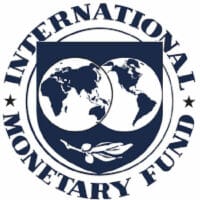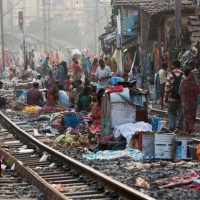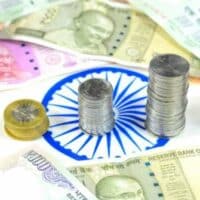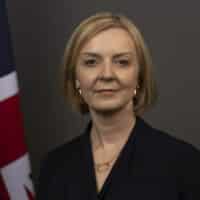-
Public opinion and imperialism
A New York Times News Service report reproduced in The Telegraph of Kolkata (May 7), discusses the findings of a global public opinion survey carried out by the Bennett Institute of Public Policy of Cambridge University. These show that the Ukraine conflict had shifted public sentiment “in developed democracies in East Asia and Europe as well as the United States of America, uniting their citizens against both Russia and China and shifting mass opinion in a more pro-American direction”.
-
India: The grim unemployment scenario
THE data on unemployment brough out by the Centre for Monitoring the Indian Economy (CMIE) present a grim picture. Not only has the unemployment rate increased sharply for some years now, starting from even before the pandemic, but the figure which had shot up during the pandemic has not come down much despite the recovery that has occurred in the level of GDP from its trough.
-
Threats to the hegemony of the dollar
JANET Yellen, the U.S. treasury secretary, has finally acknowledged what has been obvious to most people for quite some time, namely that the imposition of sanctions against countries that the U.S. is hostile to, runs the risk of jeopardizing the hegemony of the dollar as the world’s reserve currency.
-
The current state of India’s economy
GOVERNMENT officials never tire of repeating that India is currently the fastest growing major economy in the world.
-
OPEC+ and capitalism’s fight against inflation
Except in war-time, capitalism invariably seeks to control inflation by creating a recession; and this is so even when the inflation has been caused by an autonomous increase in capitalists’ profit-margins which are downward inflexible and hence would not be reduced by a recession.
-
A common misconception about capitalism
THERE is a commonly-held view that while capitalism in its early stages brings about unemployment and hence an accentuation of poverty, this initial damage is subsequently reversed as it keeps growing
-
Imperialism and natural resources
There is an overwhelming asymmetry between the level of “development” and the possession of natural resources among countries of the world.
-
Treating infrastructure as a Holy Cow
THERE is an impression shared by even progressive intellectuals that the entity that goes by the name of “physical infrastructure” is an absolute necessity in each country, and that the actual amount of infrastructure that exists is always less than what is needed.
-
“Crony capitalism” as an economic strategy
Gautam Adani’s calling Hindenburg’s allegations of fraud against him an attack on the Indian nation is a matter of particular significance.
-
The ‘rent good’ and imperialism
A “rent good” is one whose supply cannot be augmented at will, simply through investing more on its production; its supply is subject to constraints imposed by nature, because of which there is a certain maximum rate of long-run growth which is exogenously given and cannot be altered at will.
-
The abuse of the concept of “populism”
ALL regimes based on class antagonism require a discourse to legitimise class oppression and this discourse in turn requires a vocabulary of its own. The neoliberal regime too has developed its own discourse and vocabulary and a key concept in this vocabulary is “populism”.
-
The impending world recession
The IMF managing director Kristalina Georgieva has now openly admitted that the year 2023 will witness the slowing down of the world economy to a point where as much as one-third of it will see an actual contraction in gross domestic product.
-
Imperialism and the agrarian crisis
THE hegemony of imperialism is invariably associated with an agrarian crisis in countries of the global south; in fact agrarian crisis is just the other side of the ascendancy of imperialism. This is evident from the case of Indian agriculture.
-
On income and wealth inequality
THE fact that income and wealth inequalities have increased quite dramatically under the neo-liberal regime is beyond dispute. The empirical work by Piketty’s team bears out the increase in income inequality. They use income tax data to infer about the share of the top 1 per cent of the population of a country in its national income.
-
The working class under neo-liberalism
A NEO-LIBERAL regime entails a spontaneous change in the balance of class power against the working class everywhere. This happens for a number of reasons.
-
The fiscal requirement of a welfare state
THE post-second world war period had seen a spate of welfare state measures in the advanced capitalist countries, especially in Europe, in emulation of what the Soviet Union was effecting.
-
The outflow of finance from the periphery
In the current calendar year an estimated $200 billion has already flown out of India which amounts to a third of India’s exchange reserves.
-
Economics and dishonesty
In 1973-74 the Planning Commission in India had defined poverty as the inability to access 2400 calories per person per day in rural India (in practice however it applied a lower 2200 calories norm), and 2100 calories per person per day in urban India.
-
The triumph of the City
THE triumph of the City of London, the one square kilometre next to Liverpool Street station that houses the citadel of British finance, is complete.
-
Whatever happened to Liz Truss?
The most intriguing question with regard to Liz Truss’ resignation as the prime minister of Britain after a mere 44 days in office is this: what is it about her economic programme that the “market” (read “finance capital”) found unpalatable?

![President Biden at a virtual summit with China’s President Xi Jinping. [Source: axios.com]](https://mronline.org/wp-content/uploads/2022/02/biden-and-xi-copy-200x200.jpg)
